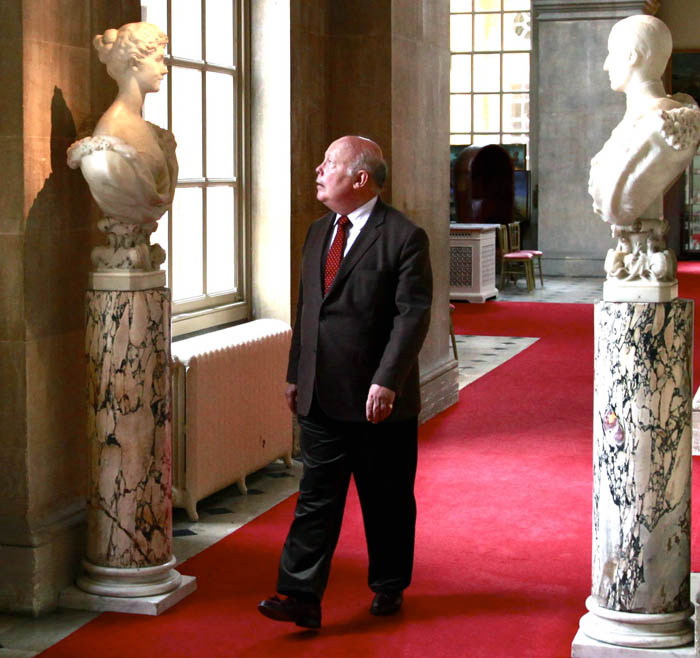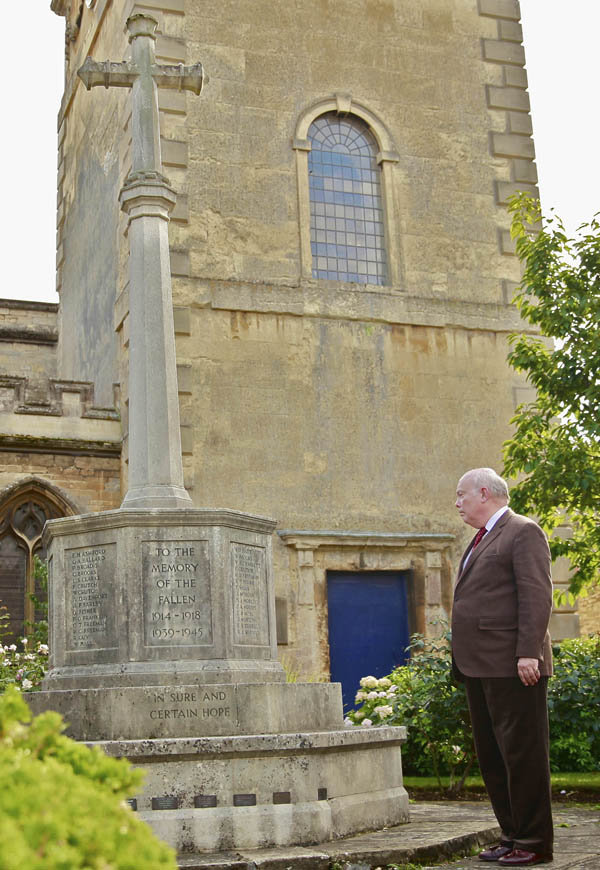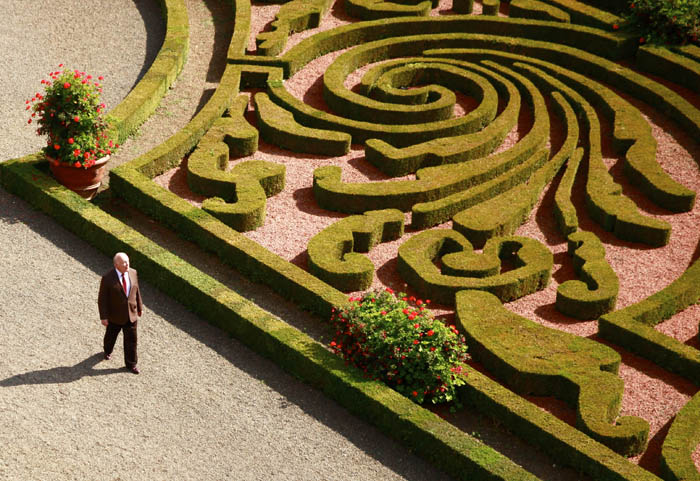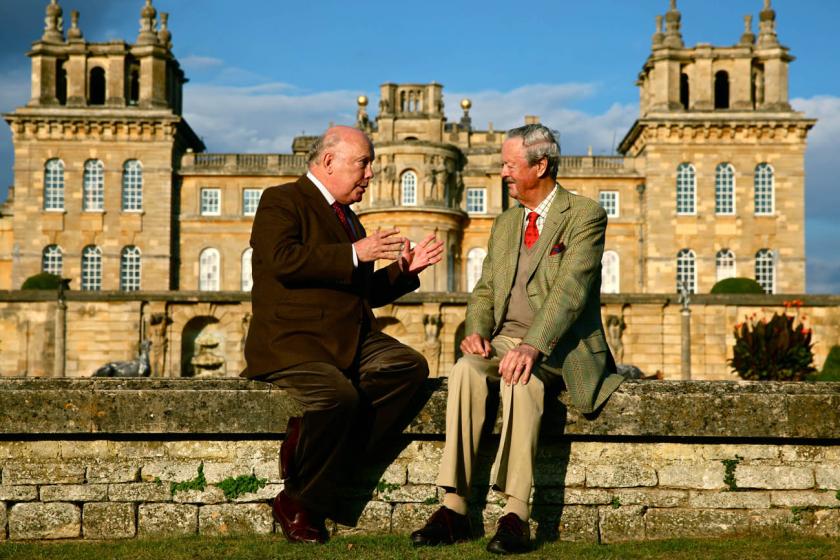Julian Fellowes, now the Conservative peer Lord Fellowes, left behind the fictional world of Gosford Park and Downton Abbey to give us this sumptuous tour of Blenheim Palace. Nor were its surroundings neglected as vista after vista showed us Blenheim’s lavishly landscaped gardens, fountains and columned monument to John Churchill, 1st Duke of Marlborough, victorious over Louis XIV. It was his military prowess that led to wealth and Blenheim itself, gifted by the grateful nation and thus an early example of government subsidy.
But this was more than a gushing visit to yet another stately home. The beauties of Blenheim were used in succinct and effective form to demonstrate the cataclysmic impact of the Great War, with (according to Fellowes) its greatest casualty being English society itself as it had been for centuries.
 The tone was elegiac, Fellowes’s conclusion being that as the old world vanished, what emerged was better – maybe – but uncertain. The subtitle, Great War House, was neatly allusive. This was a film about the permanent dislocation that war wrought in a semi-feudal society, and also about a great house put on a war footing, offering its Long Library as a convalescent home, and sending both the family and the staff to war. For Blenheim, as he demonstrated through 19th century archives and ledgers, the continuity of the community had been a miniature kingdom where everyone knew the rules.
The tone was elegiac, Fellowes’s conclusion being that as the old world vanished, what emerged was better – maybe – but uncertain. The subtitle, Great War House, was neatly allusive. This was a film about the permanent dislocation that war wrought in a semi-feudal society, and also about a great house put on a war footing, offering its Long Library as a convalescent home, and sending both the family and the staff to war. For Blenheim, as he demonstrated through 19th century archives and ledgers, the continuity of the community had been a miniature kingdom where everyone knew the rules.
The narrative focussed on individuals from Winston Churchill, who was born at Blenheim, to the 19-year-old Consuelo Vanderbilt, whose millions saved Blenheim from near-bankruptcy when she married the 9th Duke of Marlborough in 1895 (Fellowes with bust of Consuelo, pictured above). It was a business arrangement of the grandest sort – an enormous sum of money for the most illustrious of titles, marrying into a family that had spent three centuries in its own palace, with 80 indoor staff, the house set in 30,000 acres encompassing 145 tenant farms, and where generations of the same families served generations of the Spencer-Churchills.
The Duke and Duchess loathed each other. Consuelo escaped to London after producing the heir and the spare, and espoused the causes of women in work. The Duke was junior minister of agriculture in the war and was instrumental in bringing in women to replace the men fighting at the front, as we saw in vintage film of these rather dashing women labourers, wearing picturesque hats, smocks and very strong boots. Two million women, we were told, entered the work front, with the unexpected consequence of advancing the cause of female emancipation. And 200,000 women were left widows by the war (memorial to Blenheim staff killed in the Great War, below).
 Upstairs and downstairs could not help but figure. The formidable Lady Sarah Wilson, the 9th Duke’s aunt, her authority usurped by the 9th Duke’s new wife, went on to found a 200-bed hospital near the front in France; her husband Colonel Gordon Wilson was killed early on, but after only two weeks away in England for the funeral she returned to her nursing.
Upstairs and downstairs could not help but figure. The formidable Lady Sarah Wilson, the 9th Duke’s aunt, her authority usurped by the 9th Duke’s new wife, went on to found a 200-bed hospital near the front in France; her husband Colonel Gordon Wilson was killed early on, but after only two weeks away in England for the funeral she returned to her nursing.
Arthur Hine, a clerk on the estate, joined up and became a motorcycle despatch rider, witnessing the destruction of Antwerp and reporting back on the carnage to London, perhaps directly to Winston Churchill himself. Hine himself rescued a young Belgian from a burning house, taking her back to England to be brought up by his parents. And in a significant portent of things to come, he never returned to work at Blenheim but took a job with the railways; his granddaughter recalled an eccentric who would turn up unannounced to visit, before his encyclopaedic knowledge of the train timetables prompted a quick departure (Blenheim's Italianate Garden, below).
 Above all, Fellowes suggested, the First World War tempered Churchill’s arrogance and sense of entitlement, and he became kinder and more responsible. World War I made him the man to win World War II. The overwhelming and dreadful events of the conflict mixed the classes up as never before, with Fellowes discerning the emergence of the middle classes in its aftermath.
Above all, Fellowes suggested, the First World War tempered Churchill’s arrogance and sense of entitlement, and he became kinder and more responsible. World War I made him the man to win World War II. The overwhelming and dreadful events of the conflict mixed the classes up as never before, with Fellowes discerning the emergence of the middle classes in its aftermath.
But Blenheim has certaintly moved with the times. Too late for the film, Ai Wei Wei, the most subversive and sophisticated Chinese artist, under house arrest at home, is currently showing his work in the major rooms and gardens of Blenheim. Such are our statelies now, changed but surviving.















Add comment